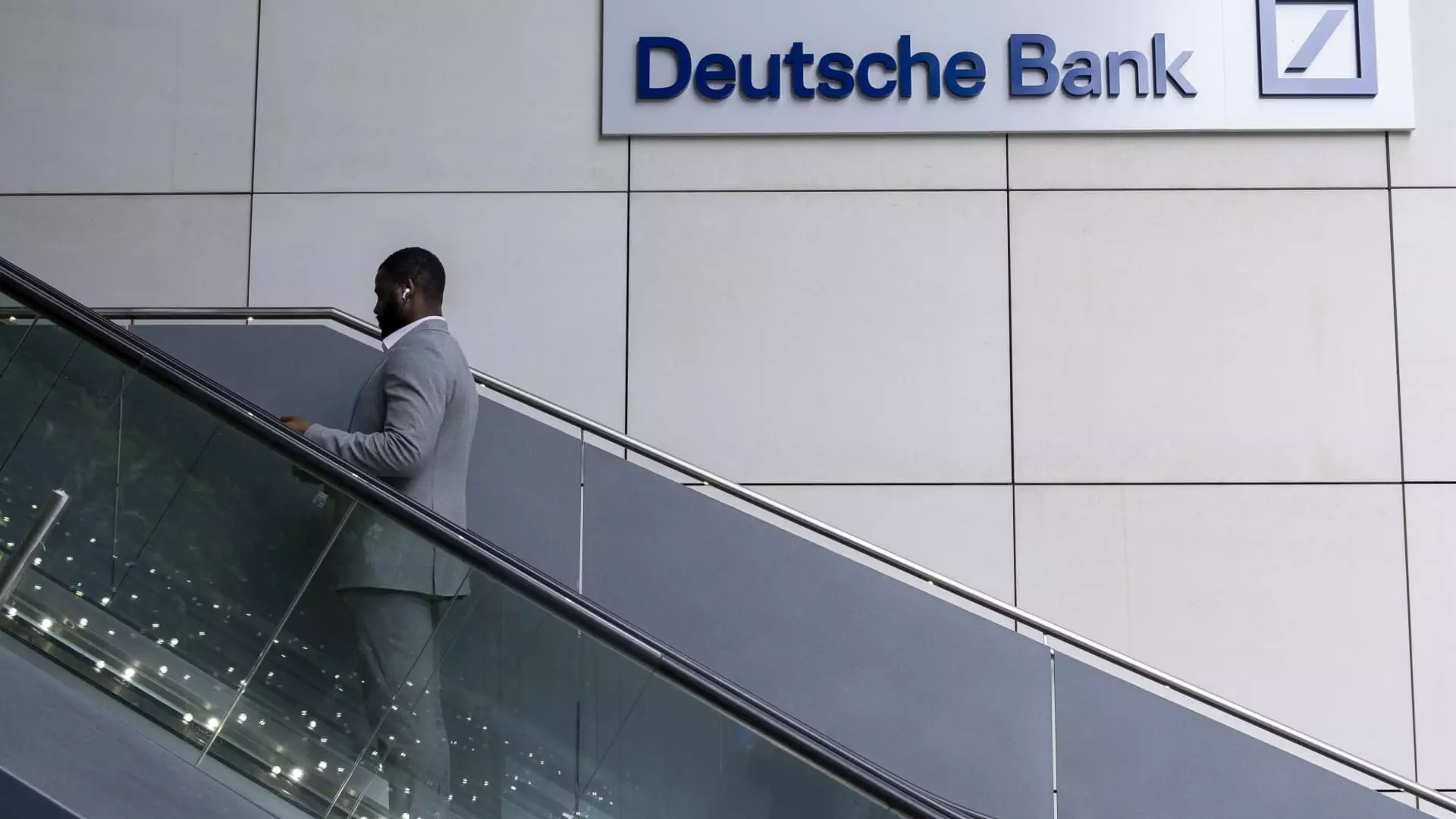Deutsche Bank, Germany’s leading financial institution, published disappointing financial results for the fourth quarter of 2024 that deviated significantly from analyst predictions. The bank’s financial health appeared to be under siege primarily due to hefty legal provisions, which heavily impacted profit margins. As a result, Deutsche Bank’s shares experienced a noticeable decline in value shortly after the announcement, indicating investor concern and confidence wavering in the institution’s exceptionally challenging financial landscape.
The net profit attributed to shareholders for the fourth quarter reached a mere 106 million euros ($110.4 million), a stark contrast to the anticipated 282.39 million euros forecasted by analysts participating in an LSEG poll. This marked a dramatic plunge from the 1.461 billion euros of profit acquired in the preceding third quarter, prompting investors and stakeholders alike to question the sustainability of the bank’s operational practices.
While Deutsche Bank’s revenue for this quarter recorded a figure of 7.224 billion euros, beating LSEG’s expectation of 7.125 billion euros, this minor triumph is quickly overshadowed by the severe litigation costs that amounted to 594 million euros. The financial strain from ongoing legal challenges not only eroded the revenue but also painted a bleak picture of the bank’s operational efficiency amid mounting expenses.
Further compounding the issue, Deutsche Bank’s full-year profit attributable to shareholders fell significantly to 2.698 billion euros, a staggering 36% decrease compared to 2023 levels. This alarming data reflects how the bank continues to grapple with numerous external and internal challenges that jeopardize its financial stability.
Chief Financial Officer James von Moltke shed light on the extensive non-operating costs that plagued the bank throughout 2024. He expressed dissatisfaction with the legal expenses, specifically highlighting how intricate issues from the past, including those stemming from the PostBank takeover, have continued to haunt the institution in the form of exorbitant costs — around 900 million euros for the year.
In response to these challenges, Deutsche Bank has set a refreshed target aiming for a cost-income ratio below 65% for the upcoming year, a revision from an original threshold of 62.5%. This shift indicates a growing recognition of the critical need for enhanced cost management strategies, particularly in the face of persistent economic uncertainties and legal pressures.
Although the quarterly financial reports revealed disappointing numbers, Deutsche Bank initiated a 750 million-euro share buyback strategy, signaling its commitment to restoring shareholder confidence amid these difficulties.
The broader European banking landscape has also experienced turbulence, exacerbated by a predicted rate reduction from the European Central Bank (ECB) anticipated in current sessions. The previously favorable conditions of high-interest rates, which served as a tailwind for banks like Deutsche Bank, seem to be fading. Analysts from ING have pointed out that banks that can pivot their focus toward fee-based income are positioned more favorably for the future.
Deutsche Bank’s investment banking division has presented a glimmer of hope, showcasing growth as revenues rose significantly by 30% year-on-year to 2.4 billion euros in the fourth quarter. This unit is the underlying foundation of growth for the bank moving forward, yet it must overcome the challenges from its legal expenditures and overall market headwinds to thrive.
Moreover, as Germany enters a political period rife with uncertainties connected to forthcoming general elections, public sentiment around the economy remains cautious. Deutsche Bank’s fate may also intertwine with that of competitor Commerzbank, as speculation regarding potential mergers intensifies amidst the evolving landscape.
Deutsche Bank is at a critical juncture. The significant decline in profits and mounting legal costs portray a stark picture of the bank’s challenges, contrasting against the backdrop of past financial recovery efforts. While the institution has made strides, especially in its investment banking segment, the overall financial health and stability of Deutsche Bank remain precarious.
For the bank to navigate these turbulent waters successfully, it must prioritize sound financial management through strategic cost reductions and innovation while also confronting the specter of lingering legal and reputational challenges. Stakeholders will closely monitor how Deutsche Bank adapts to these pressures in an evolving financial landscape that increasingly demands agility and resilience.

